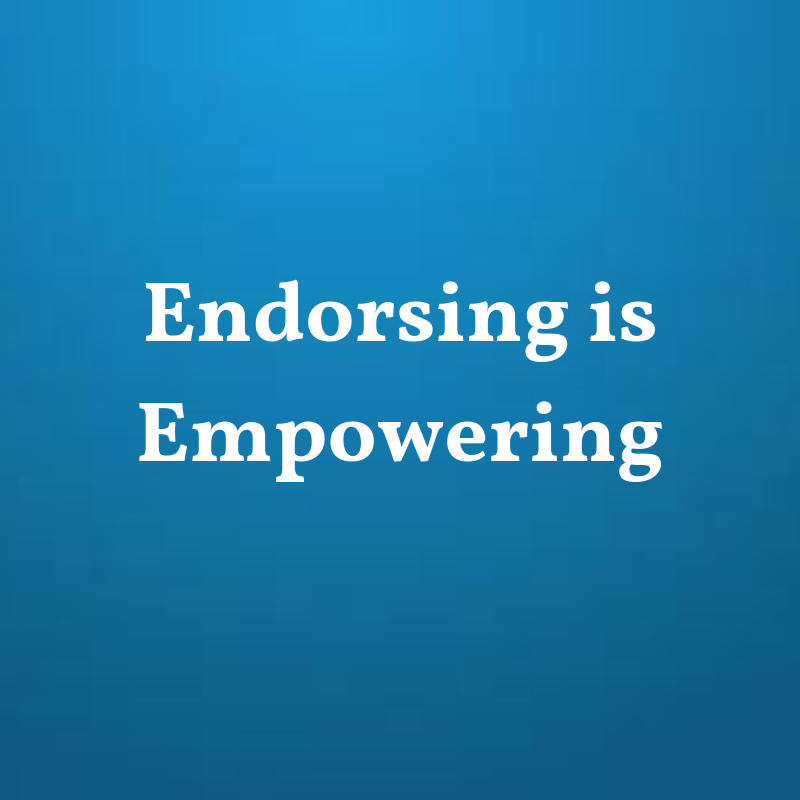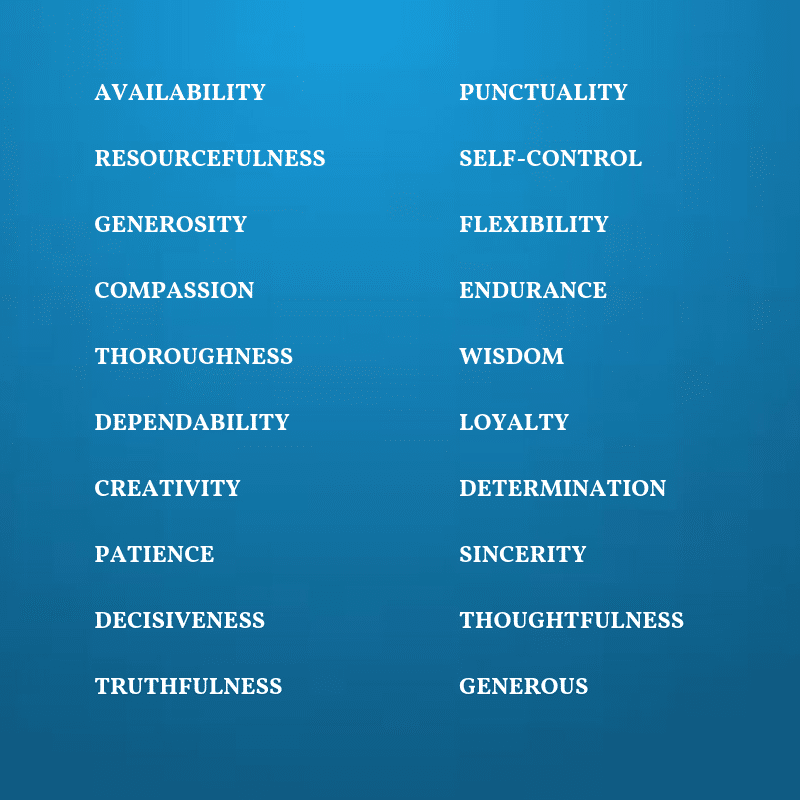The Impact of Endorsing
Have you ever received a comment that made you take notice of a particular characteristic about yourself? For example, “Your determination is exemplary” or “Those around you notice your thoughtfulness.”
How did you respond? “I guess I’ve never seen myself in that light” or “Really? I haven’t given it much thought.” Responses like these are common.
We don’t expect positive comments and observations. The world is conditioned to observe the negative because of what scientists call the brain’s “negativitybias.” Therefore, many people notice the bad qualities in others rather than the positive ones.

Endorsing is the opposite of negativity and recognizes the consistent character qualities that are demonstrated. It shows appreciation and extends a message of “I believe in you, have an outstanding opinion of you, and hold you in high regard.” When we notice a positive character quality and then communicate that observation, the person has the opportunity to embrace, believe, and internalize that quality.
Can you imagine the impact of endorsing? People living out what is true about themselves. More kindness, compassion, resourcefulness, wisdom—elements that make the world a better place.
We can contribute to a person’s beliefs: be instrumental in replacing a false belief with an accurate one, which then influences behavior.
Here is a sample list of qualities that you can include in applying the skill of endorsing:

How to endorse–
Sam, you consistently exhibit patience in challenging situations.
Melanie, you step up with creative initiative when something needs to be completed. Your decisiveness helps our team focus and stay on track.
Jermaine, you are punctual and dependable in completing the tasks you are responsible for in your job.
When you endorse someone, it generates intrinsic motivation to continue demonstrating that character quality.
This week:
- Be intentionally observant for character qualities
- Communicate that observation
Celebrate for a moment that you added a positive and genuine truth to someone’s belief that in turn possibly changed a mindset and enforced a positive character quality.

